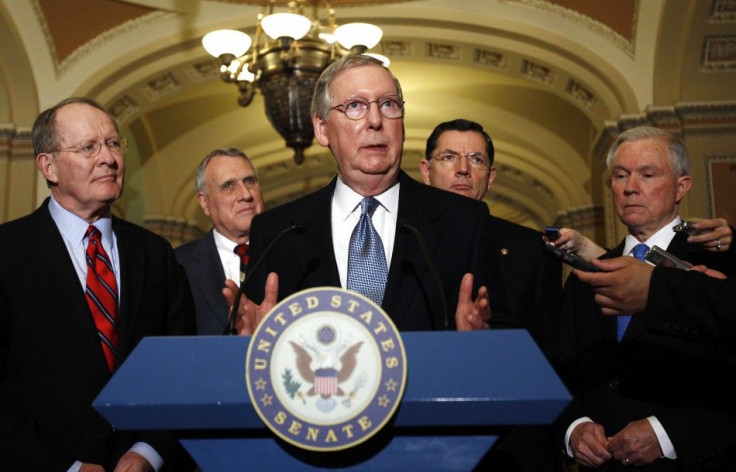Payroll Tax Cut Will Maintain Recovery's Pace, but It's No Panacea

The House of Representatives is slated to pass a 10-month extension of a payroll tax cut Friday, ending a months-long political battle that it is hoped will keep the economic recoverys' momentum throughout 2012.
Congressional negotiators hammered out Thursday the final details of the payroll tax holiday, an extension of unemployment benefits and Medicare funding for health care providers.
The $100 billion payroll tax cut, which would end by March without congressional action, will give a boost to 160 million Americans, with the average worker or family making $50,000 a year getting an extra $40 in each paycheck.
While the White House is touting the cut as a way to help struggling families, the package should prevent the recovery from slowing down. After a promising January jobs report, President Barack Obama said Congress needed to pass the payroll tax holiday to keep the recovery moving, telling lawmakers, Don't muck it up.
Economists, confident the measure will pass, factored the payroll tax cut and unemployment benefits into estimates that the U.S. gross domestic product will grow around 2.5 percent in 2012.
We'd still be growing without the package, said Sara Kline, an associate economist at Moody's Analytics. But we'd be creating drag on the overall economy.
That drag would mean less than 2 percent growth of real GDP, Kline said. Real GDP growth would dip 0.4 percentage points in 2012 without the payroll tax cut, while a failure to extend the unemployment insurance for out-of-work American would shrink real GDP by another 0.3 percentage points.
Their absence would be felt, she said in an interview.
Still, the package is not a panacea for a sluggish economic recovery, said Lewis Alexander, chief U.S. economist for Nomura.
Certainly, given where we are, we need all the help we can get, he said. But at the same time, I wouldn't overstate the magnitude of the effects of this one thing.
Another area where the package should help is the unemployment rate, which Alexander said is two percentage points above where it ought to be. He predicted the package could shave off two- to three-tenths of a percent from the unemployment rate.
It's something you can feel, he said. But it's not going to solve the problem all by itself, obviously.
© Copyright IBTimes 2024. All rights reserved.











